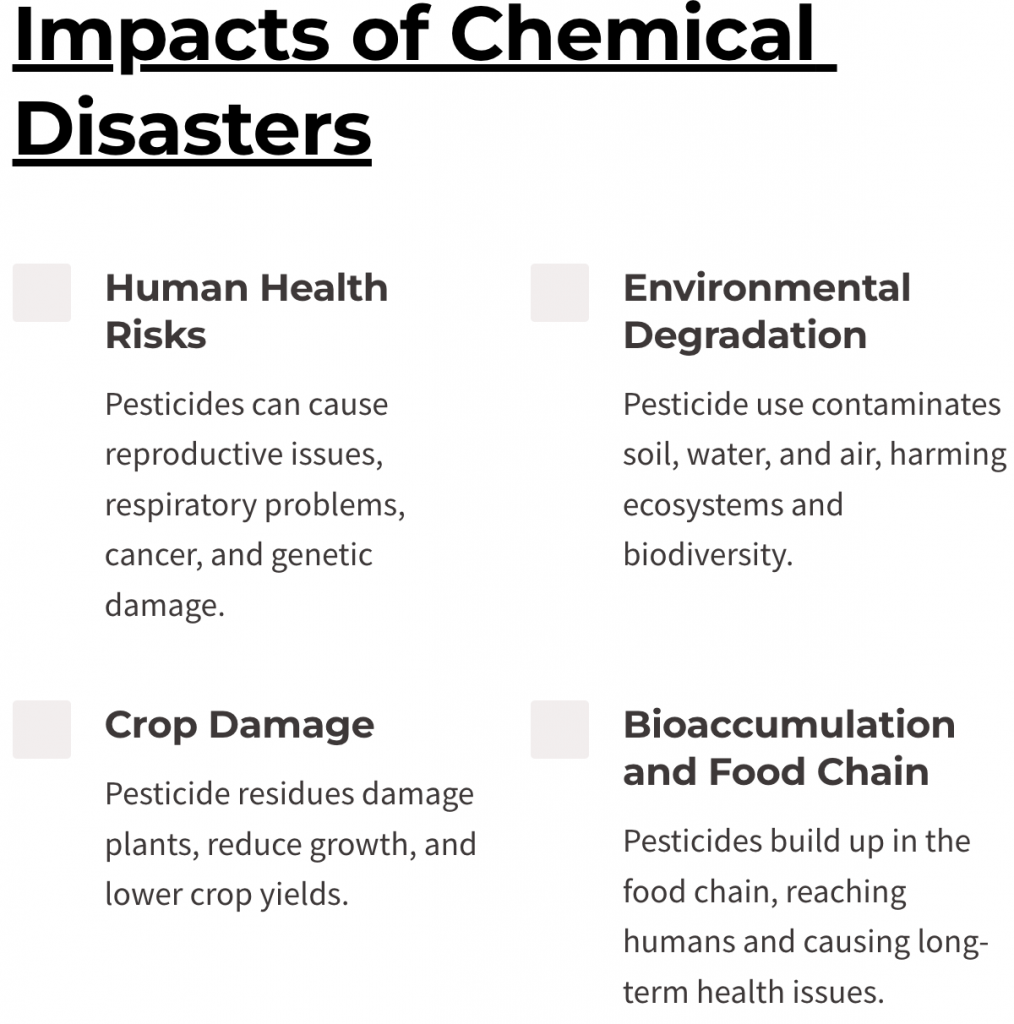Syllabus: GS3/ Disaster Management
In Context
- Forty years after the disaster, significant toxic waste from the Union Carbide India Limited (UCIL) factory continues to jeopardize public health and environmental safety.
- The leak contaminated the soil and water in Bhopal, leading to long-term environmental damage and impacting the health of the ecosystem.
Issues Still Prevalent
- Despite the devastating Bhopal Gas Tragedy in 1984, India’s chemical industry has expanded significantly, becoming the sixth largest in the world.
- Even during the COVID-19 pandemic (2020-2023), India witnessed 29 major chemical accidents, major ones like the Ammonia Gas Leak at Chennai (2024), Vizag Gas Leak (2020) etc resulting in significant casualties.

- The methyl isocyanate (MIC), the gas responsible for the Bhopal disaster, is still in use in India.
- Methyl Isocyanate (MIC) is a highly toxic and reactive chemical, even brief exposure can lead to severe respiratory distress, eye and skin damage, and long-term health complications.
- Meanwhile, many dangerous agricultural chemicals remain unregulated, such as the synthetic pesticide dichlorodiphenyltrichloroethane (DDT), which is hazardous to human health and the environment.
- India’s existing regulations are fragmented and lack the comprehensiveness of laws like the US Toxic Substances Control Act (TSCA) or the EU’s REACH regulation.
Reasons For These Disasters
- Prioritizing Economic Growth: The focus on rapid industrial expansion may have overshadowed safety concerns.
- Weak Regulatory Oversight: Lack of resources, expertise, and political will contribute to inadequate enforcement of safety standards.
- Industry Lobbying: Powerful industry lobbies may influence policy decisions, hindering stricter regulations.
- Lack of Public Awareness: Limited public awareness about the dangers of hazardous chemicals can lead to less pressure on industries and the government to prioritize safety.
Initiatives to Prevent Future Disasters
- Strengthening Regulations: India has enacted legislation such as the Explosives Act, 1884, the Chemical Accidents (Emergency Planning, Preparedness, and Response) Rules 1996, and the Environment Protection Act, 1986 to regulate hazardous industries and prevent accidents.
- National Green Tribunal (NGT): This body addresses environmental violations, including those related to industrial accidents, and provides a platform for affected communities to seek redress.
- National Disaster Management Authority (NDMA) Guidelines: These guidelines emphasize the importance of inspection systems, emergency preparedness, and community awareness.
Way Ahead
- Comprehensive Chemical Policy: India urgently needs a comprehensive chemical policy with strong regulations.
- Corporate Responsibility: Ensuring strict safety measures in industrial operations.
- Justice and Rehabilitation: Long-term healthcare and compensation for victims and affected communities.
- Environmental Safeguards: Proper disposal of toxic waste to prevent enduring environmental damage.
Source: DTE
Previous article
Earth’s Desertification Emergency
Next article
News In Short 02-12-2024